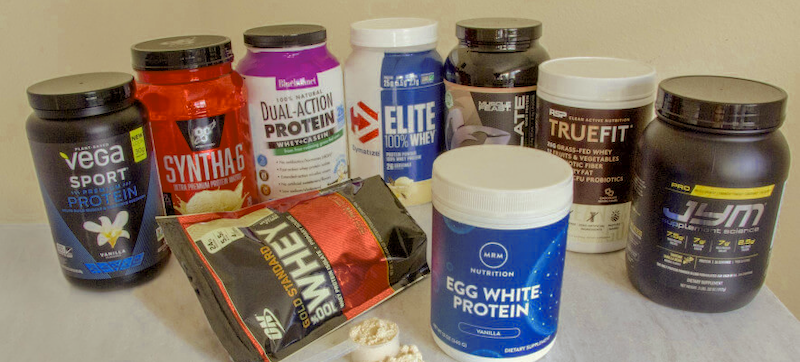First, let’s explore the different types of protein supplements on the market. You can scroll down to the table below to see the pros and cons of each.
Whey Protein
Whey protein is derived from milk and is a byproduct of cheese production. It is one of the most popular types of protein powder due to its high-quality protein content, fast absorption rate, and affordability. Whey protein contains all essential amino acids and is particularly rich in branched-chain amino acids (BCAAs) that promote muscle growth and recovery (1). There are two primary forms of whey protein: whey concentrate and whey isolate. Whey isolate has a higher protein content and less lactose, making it a better option for individuals with lactose intolerance.
Casein Protein
Like whey protein, casein protein is also derived from milk. However, casein is absorbed more slowly than whey, providing a steady release of amino acids over an extended period. This slow digestion rate makes casein an ideal choice for a pre-bedtime protein supplement to support muscle recovery and growth throughout the night (2). Casein protein is also rich in calcium, which can contribute to bone health.
Pea Protein
Pea protein is a plant-based protein powder made from yellow split peas. It is a popular choice among vegans, vegetarians, and those with dairy or soy allergies. Pea protein is hypoallergenic, easily digestible, and rich in essential amino acids, particularly arginine and BCAAs (3). While its protein quality is slightly lower than whey, it still provides a valuable source of plant-based protein for muscle building and recovery.
Soy Protein
Soy protein is another popular plant-based protein powder made from defatted soybeans. It is a complete protein source containing all essential amino acids, and it is also rich in isoflavones, which may provide additional health benefits, such as reduced cholesterol levels (4). Soy protein is an excellent option for vegans, vegetarians, and individuals with lactose intolerance.
Brown Rice Protein
Brown rice protein is a plant-based protein powder derived from whole-grain brown rice. It is hypoallergenic and easily digestible, making it suitable for individuals with food sensitivities or allergies. While brown rice protein is not a complete protein source, as it lacks some essential amino acids, it can be combined with other plants.
| Type | Pros | Cons |
|---|---|---|
| Whey Protein |
|
|
| Casein Protein |
|
|
| Pea Protein |
|
|
| Soy Protein |
|
|
| Brown Rice Protein |
|
|
| Hemp Protein |
|
|
